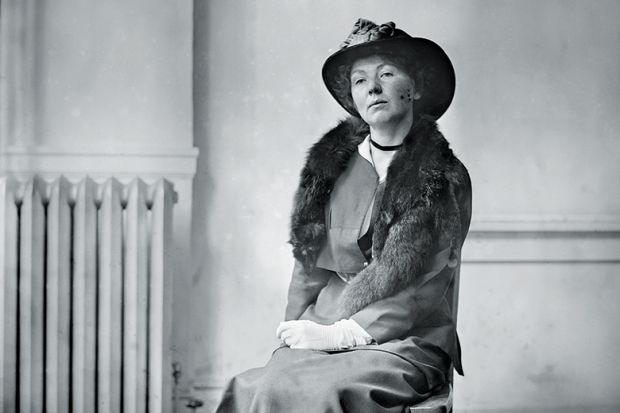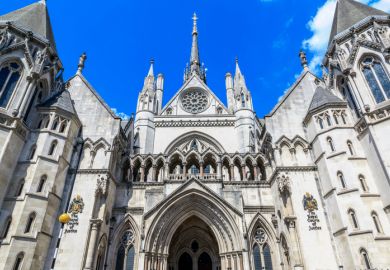When, in a brief period of school history that did not involve the Tudors, our attention turned to British campaigns for suffrage, we were told that the vote was “given” to some women in 1918 because of their “good behaviour” in 1914-18. This is a moral tale that to this day makes me furious: the idea that it is legitimate for some groups to “own” and dispense the right to vote.
June Purvis has documented the way in which this specious legitimacy was forcibly challenged by Christabel Pankhurst and her followers in the Women’s Social and Political Union. Members of the WSPU became the “unrespectable” campaigners for the extension of the franchise. Their tactics often resulted in those minor infringements to public order and property that the state likes to characterise as fundamental to social stability. But, more than that, this branch of the campaigns for suffrage endorsed that central value of the 20th century, the universality of legal and civil rights. In this, and for this, Christabel Pankhurst and her members should occupy a central place in history. Moreover, their achievements should not be taught to demonstrate the eventual “right thinking” of ruling groups but as the result of struggle and challenge.
But at the same time – and despite the continuing relevance of arguments about how to campaign for gender equality – we are left with the person of Christabel Pankhurst. Purvis has provided an exemplary and detailed study within the context of the wider Pankhurst family, in which some attention is devoted to Christabel’s life after suffrage. Most remarkably, perhaps, this one-time campaigner for women’s rights directed her attentions in later life to the cause of the Second Adventist religion. This departure from expectations, as Purvis points out, has been widely questioned and/or condemned by both contemporary and more recent writers on the history of suffrage. Where we might go with this, and where this biography offers us such rich material, is to ask the question of who owns and defines what we know as “feminism”. It is probably hard for many people to feel the same kind of sympathy for fundamentalist Christianity as for the universality of civil rights, but Purvis invites us to consider that Christabel was attempting to open up “Christianity to women’s spiritual leadership”.
This reviewer has little sympathy for Christabel’s religious campaigns. At the same time, this immensely detailed biography asks us, albeit perhaps implicitly, to think about the ways in which we judge women who take part in radical politics (from all sides of the political spectrum). In looking back to school history and when we were asked to define “great” rulers, it now seems to me that we allowed male figures greater incoherence than women. So perhaps we should reflect on that internalised assumption of female coherence, an issue raised in this engaging biography.
Mary Evans is emeritus Leverhulme professor in the department of gender studies at LSE.
Christabel Pankhurst: A Biography
By June Purvis
Routledge
590pp, £120.00 and £29.99
ISBN 9780415279475 and 9780815371496
Published 18 January 2018
POSTSCRIPT:
Print headline: Earthly struggle, holy crusade
Register to continue
Why register?
- Registration is free and only takes a moment
- Once registered, you can read 3 articles a month
- Sign up for our newsletter
Subscribe
Or subscribe for unlimited access to:
- Unlimited access to news, views, insights & reviews
- Digital editions
- Digital access to THE’s university and college rankings analysis
Already registered or a current subscriber?






